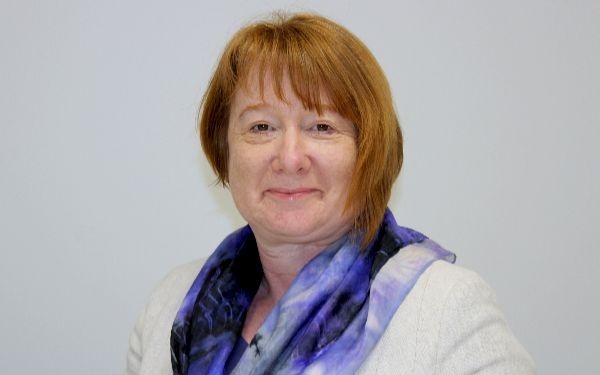
Ofsted has called on the government to extend its powers to enable it to scrutinise social care groups that run multiple children’s homes.
The inspectorate said the change was necessary to fill a “gap in accountability” left by the current regime, in which Ofsted separately inspects children’s homes run by the same provider.
It published research last week which concluded that groups had some influence and control over the day-to-day running of their children’s homes.
Ofsted called on the care review, which is due to publish final recommendations in the spring, to back the proposals to allow it to conduct thematic reviews of multi-home providers, which could be similar to its evaluations of multi-academy trusts in the education sector.
Groups’ influence over children’s homes
The inspectorate interviewed representatives and managers from 10 children’s homes groups and 11 Ofsted employees to investigate how effective its current practices were at holding decision makers at the homes to account.
It concluded that groups had some control and influence over the day-to-day running of their children’s homes, including:
- Deciding the models of care to be used.
- Being involved in admissions decisions.
- Scrutinising managers’ decisions to end placements.
- Setting policies that their children’s homes followed.
- Setting staffing levels and allocating budgets.
Ofsted said in its report that regulations should be updated to give it “additional powers to scrutinise and evaluate a group’s influence and control”, which it said would “help to identify systemic issues across the group, as well as driving improvement across the sector”.
‘Gaps in regulation’
Speaking to Community Care, Ofsted’s national director for social care, Yvette Stanley, said her organisation did not think there was a particular problem with groups owning multiple children’s homes generally, saying the private sector “does well overall”.
Ofsted’s proposals were more about increasing accountability and oversight of children’s homes groups, rather than quality, she added.
“There is a gap in the accountability system that doesn’t enable us to look at some of those decisions that are taken at a group level,” she said.
“I think we would use as a comparator the sort of thematic reviews we do of multi-academy trusts. They are not a reinspection. We inspect the individual schools but we produce a globalised narrative about that brand, or that group, as it were.
“We think there’s some insights we could provide at that level and support strengthening quality assurance at group level as well as at individual setting level.”
Ofsted’s report also said the composition of the boards of social care organisations and their parent companies “needs to be explored”, although it did not specify whether the inspectorate itself should be empowered to do this.
“Understanding where financial and legal responsibilities, beyond the quality of care and welfare of children, sit within these organisations and companies would determine exactly what regulation is needed at which level,” it said.
Financial oversight
It pointed out that the Care Quality Commission (CQC) oversees the market for adult social care – a role that involves assessing the financial sustainability of providers that would be difficult to replace should they fail – while no organisation fulfilled the same function for children’s social care.
In its recent interim report on the children’s social care market, the Competition and Markets Authority mooted creating a similar regime to the CQC’s in children’s services, in particular to address the risks of debt-laden private equity-backed providers failing.
Stanley said Ofsted could investigate the groups’ boards itself, but that it would have to recruit staff with more financial expertise in order to do so.
“Our expertise is on practice and quality. There could be an outcome that gave us a broader role and we would have to recruit people with that relevant expertise,” she said.
“We want the people who are best placed to do that, to do that. We’re up for a discussion.”
Related articles
Directors back reforms
The Association of Directors of Children’s Services (ADCS) welcomed Ofsted’s proposal to extend its powers, saying that current inspection regulations were “in need of updating to reflect how the sector now operates”.
“As the research highlights, providers that run multiple settings clearly have an influence on how they are run and therefore impact upon the quality of care and education being provided,” said Andy Smith, chair of the ADCS’s standards, performance and inspection policy committee.
“The ongoing care review offers a real opportunity to help update the system to meet the needs of children today.”
Private sector warns against power extension
But the Independent Children’s Homes Association (ICHA) argued that it was unfair for Ofsted not to include local authority homes in their research and proposals, saying “it is as likely that their polices and services are centralised and that beds may have to be filled, regardless of compatibility”.
“Whilst the ICHA supports any steps designed to improve the lives of the young people in our care and recognise that many aspects of the regulations require review, we would caution that regulation aimed at specific sections of the sector could lead to further divisions with the potential of the regulator running companies by proxy,” said ICHA chief executive Peter Sandiford.
Ofsted clarified that it would want to scrutinise councils that run multiple children’s homes as well as private companies that do so, adding that it already takes into account intelligence it holds about children’s homes in its inspections of local authorities’ children’s services.
Meanwhile, Jonathan Stanley, principal partner at the National Centre for Excellence in Residential Child Care (NCERCC), said that Ofsted would need inspectors with both forensic accountancy and sector specific knowledge to inspect groups of homes, skills “held by very few people”.
Portability of managers
In its report, Ofsted also called for children’s home managers to be able to transport their registration from one site to another, instead of having to resign their registration and reapply as they had to currently.
“Given the growth of groups and their opening of new children’s homes, we believe that this legislation should be updated to allow for portability of registration. This would minimise bureaucracy and maximise accountability,” it said.
Jonathan Stanley said that allowing registered managers to transport their registration between children’s homes “should mean heightened entry requirements” but warned this could affect recruitment to the sector.
Consultation on revising interim inspections
Meanwhile, Ofsted has launched a consultation on changing how it carries out and reports on interim inspections of children’s homes, where the regulator visits a home for the second time in a year because it has been rated requires improvement or inadequate.
Currently, following these inspections, Ofsted reports on whether the home has declined, improved or sustained its effectiveness since the last inspection. It is proposing to, instead, provide a judgment based on the inspection itself, stating whether inspectors have, or have not, identified serious and widespread weaknesses.
These inspections would also focus on whether children were safe and cared for, and whether leaders and managers were effective, rather than a wider range of inspection judgments, as at present.
This would involve talking to children about their experiences of the home, reviewing safety arrangements, including the use of restraint and sanctions, and assessing how well leaders had responded to recommendations at the previous inspection.
Finally, it has proposed changing the name of these visits to “assurance inspections”, based on their purpose of providing assurance that there are no serious or widespread concerns.
The consultation will run until 22 January 2022.




 ‘Dear Sajid Javid: please end the inappropriate detention of autistic people and those with learning disabilities’
‘Dear Sajid Javid: please end the inappropriate detention of autistic people and those with learning disabilities’ Ofsted calls for power to scrutinise children’s home groups
Ofsted calls for power to scrutinise children’s home groups Seven in eight commissioners paying below ‘minimum rate for home care’
Seven in eight commissioners paying below ‘minimum rate for home care’ Children and young people with SEND are ‘valued and prioritised’ in Wiltshire, find inspectors
Children and young people with SEND are ‘valued and prioritised’ in Wiltshire, find inspectors 
 Facebook
Facebook X
X LinkedIn
LinkedIn Instagram
Instagram
Comments are closed.